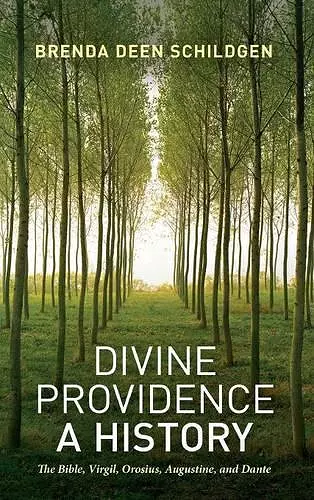Divine Providence: A History
The Bible, Virgil, Orosius, Augustine, and Dante
Format:Hardback
Publisher:Bloomsbury Publishing PLC
Published:27th Sep '12
Currently unavailable, and unfortunately no date known when it will be back

Looks at the influence of Orosius and Augustine, as well as of the Bible and Virgil, on Dante's view of the notion of providential history.
Holding divine intervention responsible for political and military success and failure has a long history in western thought. This book explores the idea of providential history as an organizing principle for understanding the divine purpose for humans in texts that may be literary, historical, philosophical, and theological.
Providential History shows that, with Virgil and the Bible as authoritative precursors to late antique views on history, the two most important political thinkers of the late antique Christian world, Orosius and Augustine, produced the theories of Christian politics and history that were carried over into the first and second millennium of Christianity. Likewise, their understanding of how the history of the late Roman Empire connects to God's plan for humankind became the background for understanding Dante's own positions in the Monarchia and the Commedia.
Brenda Deen Schildgen examines Dante's engagement with these authoritative sources, whether in biblical, ancient Roman writers, or the specific legacy of Orosius and Augustine.
"It is a seductive but dangerous idea to want to sanctify the machinations of political power with the imprimatur of providence. At the heart of Schildgen's study of the providential ideal is her reading of Dante's shift from an imperialist theology, in the vein of an Orosius, in Monarchia to the subtle Augustinianism of the Commedia, his poetic masterwork. Schildgen sets the stage for Dante with the late antique debate within Christianity over the visibility of providence, mainly a story of two different syntheses of two contrasting legacies: one biblical, the other Roman. She has an extraordinary ability to weave a narrative thread through a thicket of conceptual and historical complexity."-James Wetzel, Augustinian Endowed Chair, Villanova University
ISBN: 9781441112705
Dimensions: unknown
Weight: 553g
224 pages